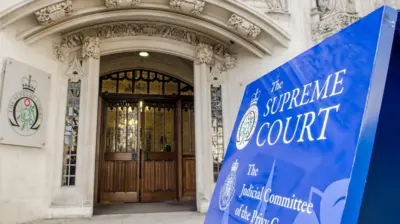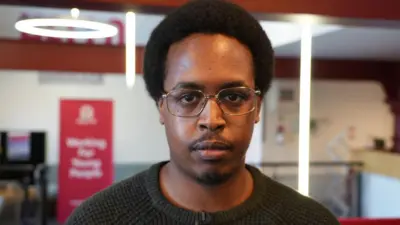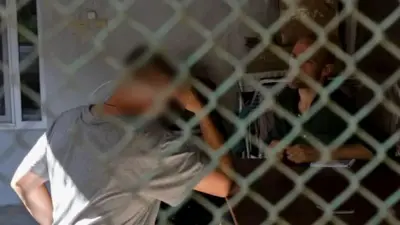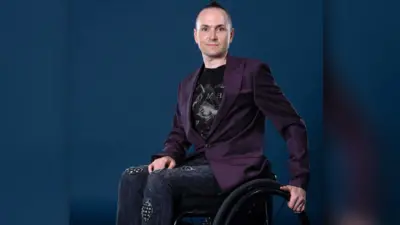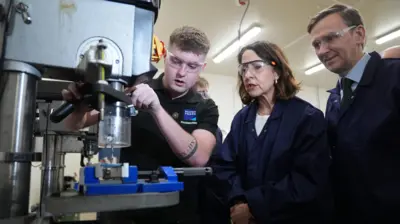We've updated our Privacy and Cookies Policy
We've made some important changes to our Privacy and Cookies Policy and we want you to know what this means for you and your data.
Coronavirus: Robin Swann says taking no action 'is not an option'
Image source, PA Media
Deciding not to impose new Covid-19 restrictions across NI would have been a "total abdication of responsibility", Health Minister Robin Swann has said.
It comes after the evidence used to inform Stormont's decision to enforce a limited lockdown was criticised as "flimsy" and "shocking".
Tight NI-wide restrictions came into force last Friday, for four weeks.
Top Stories
Mr Swann said the executive could not have sat back "and let Covid rip unchecked" across Northern Ireland.
The evidence that formed the basis for the executive's response was published by the Department of Health on Tuesday.
Simon Hamilton, the head of the Belfast Chamber of Commerce, said it posed massive questions for the executive.
But Mr Swann defended the executive's actions.
Top Stories
'No real or feasible alternatives'
"Within days we will exceed the highest number of hospital admissions experienced in the first wave - we had to stop that spread," he told a press conference at Stormont on Wednesday.
"If no full lockdown is imposed, restrictions have to be targeted however complicated that may be.
"I have yet to see any real or feasible alternatives to the actions we are taking."
The minister said if people did not follow the public health guidance, many more avoidable deaths would occur.
He said he was hugely concerned by the fact that 83 care homes in Northern Ireland have confirmed Covid-19 outbreaks.
"The blunt truth is that widespread community transmission makes it increasingly hard to keep care homes safe," he added.
He said his department was announcing a further £27m of funding support for the care home sector, on top of previously announced packages - subject to executive approval.
On Wednesday, Northern Ireland reported 1,039 new coronavirus cases, bringing the total number of cases to 29,992.
There was also five further Covid-19 related deaths were reported, bringing the total death toll to 629.
In the Republic of Ireland there were three additional deaths related to Covid-19 reported on Wednesday.
It brings the total number of deaths in the country to 1,868.
As of midnight on Tuesday, the Irish Department of Health reported 1,167 new cases of Covid-19, bringing the total number of confirmed cases to 53,422.
Prof Ian Young, NI's chief scientific adviser, said the R-number (reproduction number) in Northern Ireland was currently sitting at 1.4.
R represents the number of individuals who, on average, will be infected by a single person with coronavirus - the goal is to keep it below one.
Prof Young said it needed to fall to "at least 0.9, and preferably 0.7".
"We need to take all the interventions we can get because it's the collective intervention that's going to count," he added.
"Small changes in R are really important and everyone who contributes to that is making a real difference."
He also expressed concern that the majority of coverage was "focused on one document" and that he hoped "people will begin to look at the broader evidence which we're making available."
What do the published papers say?
The evidence includes the executive's paper on "non-pharmaceutical options" for reducing the risk of Covid-19 as well as papers from the government's Scientific Advisory Group for Emergencies (Sage), slides presented at Stormont press conferences and the weekly reports on the R-number.
The executive's paper looks at the possible effectiveness of various restrictions on travel, personal contacts, education and church openings.
It also outlines the reasons for the four-week lockdown currently in place in Northern Ireland.
Top Stories
Image source, PA Media
This has seen the closure of hospitality businesses, with pubs and restaurants limited to takeaway only.
According to the paper, hospitality closures could have a moderate impact on transmission of the virus, with a potential reduction in the reproduction (R) number of between 0.1 and 0.2.
The paper also said the closure of close-contact businesses like hairdressers and beauticians will have a low impact on transmission with a potential reduction of the R number of 0.05.
It recognises that these closures would have a high impact on staff due to a loss of income, with the paper noting that the closure of close-contact services is "likely to disproportionately affect the poorest (and women) given employment in personal services".
The paper, however, said that there was some evidence of transmission among hairdressers in the UK and cites a report produced by the Centre for Disease Control, the United States' health protection agency, which suggests those who test positive are twice as likely to have eaten in a restaurant.
How have business leaders reacted?
Simon Hamilton told BBC's Good Morning Ulster programme that the evidence was "indeed shocking" and "raises many more questions".
"Most bizarrely, it refers to anecdotal reports of outbreaks linked to bars.
"If we're going to close down the hospitality industry in Northern Ireland which sustains 65,000 jobs; accounts for two thirds of tourism spend and buys about a third of our agri-food produce, we need a lot more than anecdotal reports.
"This really is flimsy evidence," he said.
Image source, PAcemaker
Kerry Doherty, who rents a chair in a Derry salon, said that come Friday she would have "no wages".
"We were told to close down, that we had to make the sacrifice to protect people from Covid, which is 100%, I totally agree.
"And now this report is saying closing me and other hairdressers does next to nothing to help stop Covid." Read more here.
Top Stories
More to explore
Most read
Content is not available
